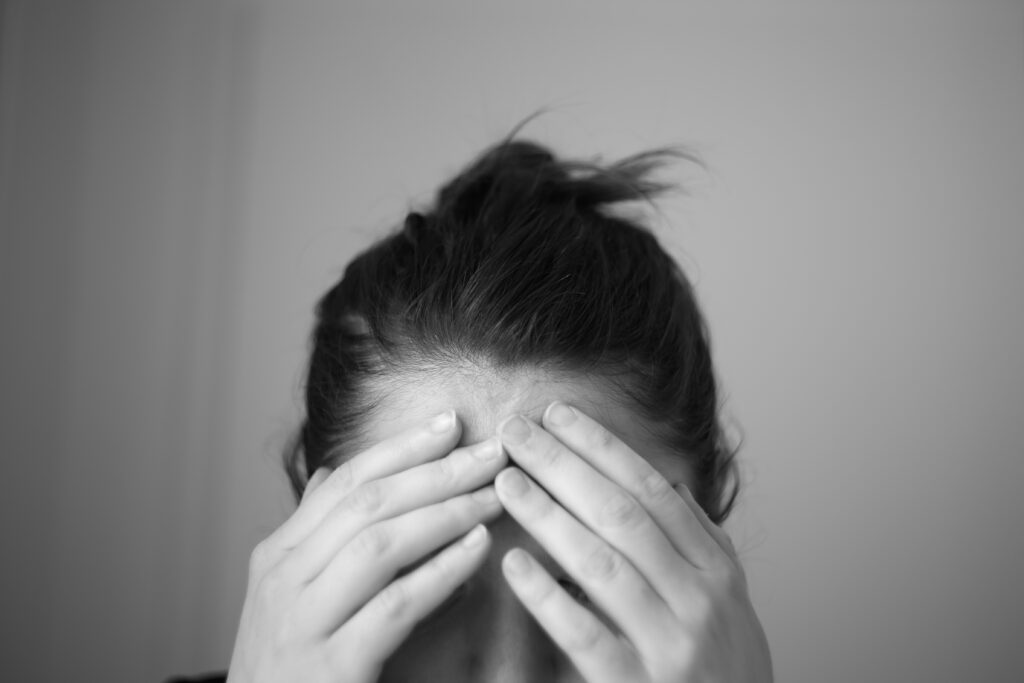
Even if it feels like you are light years away from menopause, it’s essential to understand how your mental health is impacted by hormones if you have a uterus.
In a culture that prioritizes youth, it can be scary and shameful to feel as though you are getting older. But growing older is human! The more people can openly discuss aging, including hormonal changes, the less shame there will be.
Read on to learn about the stages of menopause and to understand the physical symptoms, cognitive changes, and mental health impacts you may experience during this transformative time, plus practical strategies to help manage throughout the process.
First, let’s explore the timeline:
Perimenopause (late 30s to early 50s)
- Hormone levels start fluctuating, leading to irregular periods
- Physical symptoms such as hot flashes, night sweats, and vaginal dryness may occur
- Cognitive changes might begin, including short-term memory lapses and difficulty concentrating
Menopause (usually occurs around 51)
- Cessation of menstrual periods for 12 consecutive months
Postmenopause
- Hormone levels stabilize
- Physical symptoms may continue but often less in severity over time
- Cognitive changes, commonly known as ‘brain fog’ may persist
What can these symptoms and changes include?
Physical Symptoms:
During the menopausal process, folks may experience a range of symptoms that can disrupt daily life. Hot flashes and night sweats can disturb sleep, while vaginal dryness can cause discomfort and affect intimate relationships. The fluctuating hormone levels can also impact bone density, leading to an increased risk of osteoporosis. It’s essential to be proactive in managing these symptoms and seeking medical advice when necessary.
Cognitive Changes:
The hormonal fluctuations that occur during the menopausal process can affect cognitive function, leading to memory lapses, difficulty focusing, and reduced mental clarity. Many folks report feeling like their minds are not as sharp as they used to be. Understanding that these cognitive changes are a natural part of the aging process, and NOT a sign of permanent decline, can help alleviate anxiety!
Mental Health Impacts:
The menopausal process can be emotionally challenging. Hormonal changes can contribute to mood swings, irritability, and feelings of sadness or anxiety. Additionally, the physical discomfort and cognitive challenges may add to the emotional burden. Folks with a history of depression or anxiety may be more susceptible to experiencing worsened symptoms during this time. It’s crucial to address mental health concerns and seek support when needed.
Finally, strategies to help!
Educate yourself.
Knowledge is power. Learn about the stages of the menopausal process, including the physical and emotional changes that can occur. Understanding that these changes are a normal part of the aging process can reduce fear and uncertainty.
Communicate.
Openly discuss your experiences with trusted friends, family, or support groups. Sharing your journey can help you feel understood and less isolated.
Maintain a healthy lifestyle.
Regular exercise, a balanced diet, and sufficient sleep are essential for overall well-being. Physical activity can also help alleviate some of the symptoms associated with menopause.
Practice mindfulness and stress reduction.
Engage in mindfulness practices, meditation, or yoga to reduce stress and promote emotional balance.
Seek professional help.
If you find that the physical symptoms or mental health impacts significantly affect your quality of life, don’t hesitate to consult a healthcare professional or a therapist. They can provide guidance, support, and treatment options tailored to your needs.
. . .
Menopause brings about a myriad of both physical and emotional challenges. But by understanding the timeline, physical symptoms, cognitive changes, and mental health impacts associated with these phases, you can better prepare for this transition.
Utilizing strategies such as staying informed, seeking support, and prioritizing self-care, will enable you to confidently embrace this new chapter and maintain your mental well-being.
Remember, you are not alone in this journey!
If you want to learn more about the symptoms of menopause and practical strategies to help manage (now or in the future!) join us for Simone’s virtual workshop coming up this Thursday, October 26. Attend from anywhere in the United States. Sign up here.
Simone specializes in anxiety and depression, LGBTQ+ mental health, parenthood, and substance use. To learn more about Simone, read her bio here.
Looking for a therapist or unsure where to begin? Get started on our booking page, here.